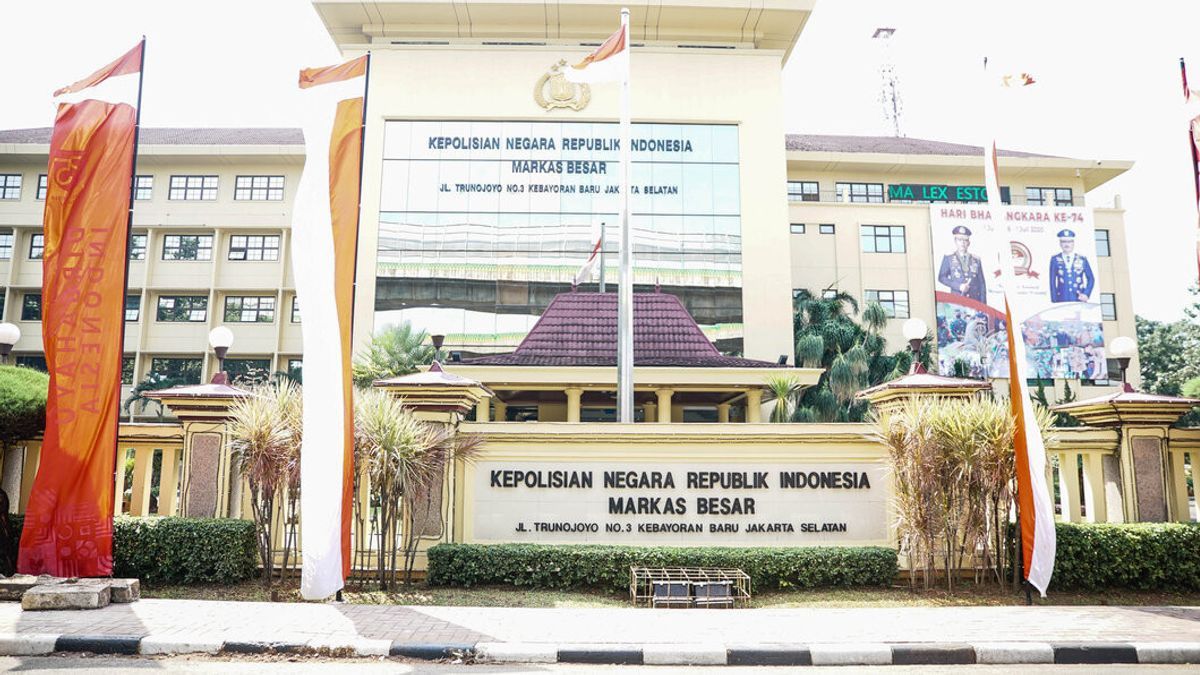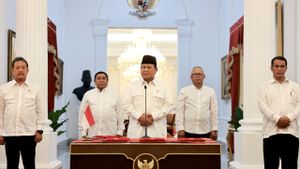JAKARTA - Indonesia Police Watch (IPW) criticized the suggestion by the Governor of the National Resilience Institute (Lemhannas) Lt. Gen. TNI (Ret.) Agus Widjoyo to place the National Police under the Ministry of Home Affairs.
IPW assesses that this can be analogous to the gust of wind on coral hills in the sea, which does not have any influence on the institutional police.
The head of Indonesia Police Watch, Sugeng Teguh Santoso, said the proposal would hit a rocky rock with complicated regulations and political practices. Because, in accordance with Article 30 paragraph 4 of the 1945 Constitution, it is written, "The State Police of the Republic of Indonesia as a state instrument that maintains public security and order has the duty to protect, protect, serve the community, and enforce the law.
While in TAP MPR No. VII/MPR/2000 concerning the Role of the TNI and the Role of the Police, states that the National Police of the Republic of Indonesia is under the President. While article 8 of Law NO. 2 of 2002 it is clearly stated that the Polri institution is under the President as the Head of State.
"If the Lemhannas Governor's proposal is to be implemented, there will be a long process of changing or amending the constitution, repealing MPR Decrees and revising the National Police Law," said Sugeng in Jakarta, Tuesday, January 4.
In addition, he continued, they will face a complicated political process and full of political bargaining with major parties and party leaders to be able to push the proposal of the Governor of Lemhannas.
Taking into account the polemic related to the proposal, said Sugeng, the proposal from the Governor of Lemhannas is only a momentum to remind the public, politicians and even the president about the issue of the dual function of the Indonesian National Police which is getting stronger after the reform. In particular, the social and political role which is very real and has become the focus of the dual function group of ABRI, which used to exist and is now finished.
"So there seems to be a shift in the center of power from the dual function of ABRI during the new order to the dual function of the National Police in the current reform era," he said.
Sugeng explained that the term 'dual function of the National Police' itself was not explicitly stated, but it was actually applied based on Article 28 of Law 2 of 2002 concerning the National Police. Therefore, this must be a serious thought from the leadership of the Police.
"The form of the 'dual function of the National Police' appears in the placement of active police officers with assignments by the National Police Chief in civil institutions, ministries and state-owned enterprises," he said.
In addition, Sugeng explained, there is a potential for a political year where according to the Ministry of Home Affairs there are at least 272 regional heads whose terms of office will expire in 2022 and 2023 must be filled by the executor of the task (Plt). Meanwhile, the elections will take place simultaneously in 2024 and require domestic security.
"In appointing the task force, the government always considers people who are able to maintain security until the election is complete. The domestic security sector is a top priority and is the main task of the Police," he explained.
Sugeng also explained that in political practice there was a precedent in the 2018 West Java Regional Head Election. At that time, the government appointed a high-ranking National Police officer who was also the Main Secretary of the National Defense Institute Komjen Pol. Mochamad Iriawan or Iwan Bule as acting (Plt) Governor of West Java.
The appointment itself was based on Presidential Decree No. 106/P of 2018 concerning Ratification of the Respectful Dismissal of the Governor and Deputy Governor of West Java for the 2013-2018 term and the Appointment of the Acting Governor of West Java which was signed by President Jokowi, on June 8 2018. However, many people protested against it. but the government continues to inaugurate because the guarantee can maintain regional security.
Taking this into account, IPW believes that the leadership of the National Police must be careful, careful and introspective regarding the issue of the dual function of the National Police so that jealousy from other institutions does not occur.
"With the passing of the proposal from the Governor of Lemhannas which, according to IPW, is related to the issue of 'dual function of the National Police', IPW asks the President to give special attention so that there is no excessive attitude from the Polri institution that has the potential to create political ripples from groups who feel left behind," said Sugeng.
Previously, Agus Widjojo in his statement said that the Ministry of Homeland Security would oversee the National Police. This proposal is based on the results of an internal study at Lemhanas.
He said that so far security issues have been included in the portfolio of the Ministry of Home Affairs (Kemendagri). However, Lemhanas assesses that the burden on the ministry is too much so that it is necessary to form a Ministry of Homeland Security.
Agus stated that this proposal was only a discourse and had not been officially proposed to President Joko Widodo (Jokowi). But, he considered, the Police as an operational institution should not be able to formulate its own policies.
"To realize security and order, there needs to be law enforcement, namely the National Police. It should be placed under one ministry, and the National Police like the TNI, an operational institution. Operations must be formulated at the ministerial level by a political institution, from which policy formulations are made, defense by TNI, and security of order by the Police," said Agus.
The English, Chinese, Japanese, Arabic, and French versions are automatically generated by the AI. So there may still be inaccuracies in translating, please always see Indonesian as our main language. (system supported by DigitalSiber.id)













